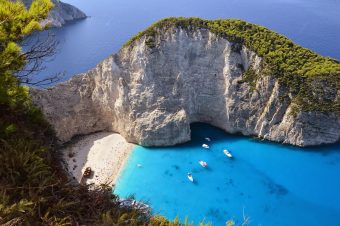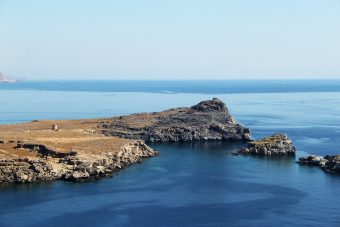
The European Environment Agency (EEA) in collaboration with the Commission reports that the majority of European bathing sites meet the European Union’s highest ‘excellent’ water quality standards in 2022, maintaining the quality seen in recent years.
The report, which was released today, was based on the monitoring of 21,973 bathing sites across Europe. It provides information on where swimmers can find the cleanest bathing sites in Europe this summer.
Coastal sites, accounting for two-thirds of all bathing spots, generally outperformed inland river and lake sites in terms of water quality. In 2022, 88.9 percent of EU’s coastal bathing sites were classified as ‘excellent,’ compared to 79.3 percent of inland sites.
MORE:
- CLEAN ENERGY INVESTMENT IS EXTENDING ITS LEAD OVER FOSSIL FUELS, BOOSTED BY ENERGY SECURITY STRENGTHS
- THERE IS NO ALTERNATIVE TO RENEWABLE ENERGY
- MANUFACTURING PLANS FOR KEY CLEAN ENERGY TECHNOLOGIES ARE EXPANDING RAPIDLY AS INVESTMENT MOMENTUM BUILDS
The countries of Cyprus, Austria, Greece, and Croatia stood out with 95 percent of their bathing waters meeting the ‘excellent’ quality standard in 2022. Furthermore, all assessed bathing waters in Malta, Bulgaria, Romania, Slovenia, and Luxembourg met at least the minimum ‘sufficient’ quality standard.
According to the report, since the Bathing Water Directive was enacted in 2006, the proportion of ‘excellent’ sites has increased, stabilizing in recent years at between 85–89 percent for coastal and 77–81 percent for inland bathing waters. In 2022, it represented 85.7 percent of all EU bathing waters. The minimum water quality standards were met by 95.9 percent of all EU bathing waters.
The percentage of bathing waters with poor water quality has been declining over the last decade and has been stable since 2015, at a mere 1.5 percent in 2022. This represents a gradual reduction in the health risks associated with swimming in Europe’s bathing waters.

Commissioner for Environment, Oceans and Fisheries expressed confidence in the quality of Europe’s bathing sites. He affirmed the importance of maintaining high standards for citizens’ health and wellbeing, and noted the EU’s role in reducing pollutants in oceans and rivers.
Urban bathing waters, primarily in Greece, France, Italy, and Spain, make up 8 percent of the total, and contribute significantly to the quality of life in these cities and ecosystem benefits.
Inland bathing waters, mainly in Central Europe, are more vulnerable to short-term pollution due to heavy summer rains or droughts. This is because they are often located in relatively small lakes, ponds, and rivers with low flow.
As part of the European Green Deal and Zero Pollution Action Plan, the Commission is evaluating whether the Bathing Water Directive is still appropriate for protecting public health and improving water quality, and if any enhancements are required.
Energy Portal



